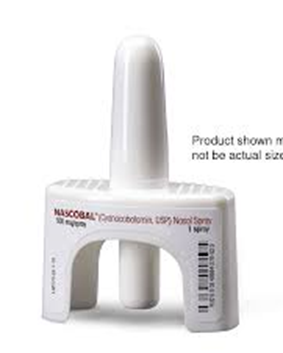A nurse is completing a medication reconciliation for a client prior to his transfer to a long-term care facility. Which of the following actions should the nurse take?
Remove duplicate medications of different dosages from the reconciliation
Compare the current list of medications to medications the client will receive after transfer.
Omit over-the-counter medications from the at-home medication list.
Include medications the client received in the acute setting but will no longer need after transfer.
The Correct Answer is B
Choice A Reason:
Remove duplicate medications of different dosages from the reconciliation is incorrect. Removing duplicate medications with different dosages from the reconciliation is indeed essential. However, the primary focus during transfer is to compare the current medication list with the new regimen to avoid omissions or discrepancies in the transition process.
Choice B Reason:
Compare the current list of medications to medications the client will receive after transform is correct. Comparing the current list of medications, the client is taking to the medications they are expected to receive after transfer is crucial for ensuring a seamless transition of care. This process helps identify discrepancies, potential interactions, or changes in the medication regimen between settings, ensuring the continuity and accuracy of medication administration.
Choice C Reason:
Omit over-the-counter medications from the at-home medication list is incorrect. Over-the-counter medications should ideally be included in the medication reconciliation process to provide a comprehensive overview of all medications the client is taking, including potential interactions with prescribed medications.
Choice D Reason:
Include medications the client received in the acute setting but will no longer need after transfer is incorrect. The reconciliation process should aim to update the medication list to reflect the client's current and future medication needs accurately. Including medications, the client received in the acute setting but won't need after transfer might introduce unnecessary medications into the new regimen. These should be communicated but not included in the ongoing medication list.
Nursing Test Bank
Naxlex Comprehensive Predictor Exams
Related Questions
Correct Answer is C
Explanation
Choice A Reason:
There's no requirement to lie down for an hour after administering nasal cyanocobalamin.
Choice B Reason:
The duration of treatment might vary depending on the healthcare provider's instructions and the client's response, so stating a specific duration of 6 months may not be accurate.
Choice C Reason:
"Administer the medication into one nostril once per week. “Nasal cyanocobalamin is typically used weekly for the treatment of pernicious anemia. It's administered into one nostril as directed by a healthcare provider. This method allows for the absorption of vitamin B12 through the nasal mucosa.
Choice D Reason:
Using a nasal decongestant before administering the medication is not typically part of the recommended administration protocol for nasal cyanocobalamin.

Correct Answer is ["60"]
Explanation
Step 1: Determine the Lidocaine Concentration
- The solution contains 2 grams (2000 mg) of lidocaine in 500 mL.
- To find the amount of lidocaine per mL:
2000 mg ÷ 500 mL = 4 mg/mL
Step 2: Calculate the Total Dose per Hour
- The prescribed infusion rate is 4 mg per minute.
- In 1 hour (60 minutes), the total dose is:
4 mg/min × 60 min = 240 mg/hr
Step 3: Determine the Infusion Rate in mL/hr
- Since each mL contains 4 mg of lidocaine:
240 mg ÷ 4 mg/mL = 60 mL/hr
The nurse should set the IV pump to 60 mL/hr for the continuous IV infusion of lidocaine at a rate of 4 mg/min.
Whether you are a student looking to ace your exams or a practicing nurse seeking to enhance your expertise , our nursing education contents will empower you with the confidence and competence to make a difference in the lives of patients and become a respected leader in the healthcare field.
Visit Naxlex, invest in your future and unlock endless possibilities with our unparalleled nursing education contents today
Report Wrong Answer on the Current Question
Do you disagree with the answer? If yes, what is your expected answer? Explain.
Kindly be descriptive with the issue you are facing.
